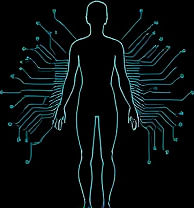Optimizing Sleep Cycles for Better Health and Performance
 by Verner Mayer
by Verner Mayer
Discover how to fine-tune your sleep cycles using biohacking techniques for enhanced energy and focus. Explore wearable devices, natural methods, and smart habits to achieve restorative rest and improve overall well-being, all while boosting cognitive function.

Sleep cycle optimization stands as a key element in biohacking for those seeking better health. Many people overlook how quality rest influences daily energy levels. For instance, consistent patterns can lead to improved mental clarity and physical recovery.
In the field of health optimization, focusing on sleep means paying attention to the natural rhythms of the body. Each night, cycles alternate between light and deep stages, lasting about 90 minutes each. By aligning your schedule with these patterns, you create conditions for more effective rest. Wearable technology plays a vital role here, offering insights into sleep patterns through devices that track movement and heart rate.
One effective approach involves adjusting your environment. For example, maintaining a cool, dark room supports deeper sleep phases. Simple changes, such as using blackout curtains, can make a significant difference. Combined with wearable technology, you gain data to refine these adjustments over time.
Diet also factors into this process. Certain foods, like those rich in magnesium, promote relaxation and ease the transition into sleep. Incorporating nuts or leafy greens in the evening routine provides nutrients that aid in this. Nootropics offer another angle, with substances like melatonin supplements helping to regulate internal clocks without harsh side effects.
Building a routine around these elements enhances personal development. Start by setting a fixed bedtime, allowing your body to anticipate rest. This consistency builds over weeks, leading to noticeable improvements in mood and productivity.
The Role of Wearable Devices in Tracking Sleep
Wearable technology has transformed how we approach rest. Devices that monitor cycles provide detailed reports on sleep duration and quality. For tech enthusiasts, this means using apps to analyze data and identify trends.
For example, a tracker might reveal that you spend more time in light sleep during certain nights. With this information, adjustments become straightforward. Perhaps reducing screen time before bed helps shift towards more restorative phases. The integration of such tools into daily life empowers users to take control of their health.
Natural Methods for Enhancing Sleep Quality
Beyond gadgets, natural strategies offer sustainable benefits. Exposure to morning light helps reset your internal clock, promoting wakefulness during the day and sleepiness at night. Activities like morning walks align your rhythms with the day's natural flow.
Exercise earlier in the day also contributes, as physical activity influences hormone levels that affect sleep. A moderate routine, such as yoga or jogging, prepares the body for rest without causing overstimulation. These methods, when combined, form a holistic approach to optimization.
Nootropics can complement these efforts. For instance, herbal options like valerian root assist in achieving deeper sleep stages. Unlike stimulants, these focus on calming the mind and supporting recovery. Users often report better focus the next day after incorporating them.
Personal Enhancement Through Consistent Habits
Developing habits around sleep optimization leads to long-term gains. Tracking progress with a journal allows you to note what works best for your body. Over time, this practice turns into a personalized system for enhancement.
Motivation comes from seeing results, such as waking up refreshed and ready for challenges. For wellness enthusiasts, this means integrating sleep into broader goals like cognitive improvement or physical fitness. By prioritizing rest, you set the foundation for peak performance in all areas.
In practice, aim for seven to nine hours per night, adjusting based on your needs. Avoid caffeine in the afternoon to prevent interference with later cycles. These steps, though simple, accumulate into profound changes.
Integrating Nootropics for Cognitive Benefits
While wearable technology handles monitoring, nootropics address the cognitive side. Certain compounds enhance brain function by improving sleep quality indirectly. For example, omega-3 supplements support neural health, leading to more efficient cycles.
This synergy between rest and mental sharpness motivates many to experiment. By optimizing sleep, you not only recover physically but also sharpen focus and creativity. The key is balance, ensuring that enhancements align with your overall lifestyle.
Ultimately, the pursuit of better sleep through biohacking opens doors to enhanced well-being. With the right tools and habits, anyone can achieve this transformation, turning nights into a powerful ally for personal growth.
